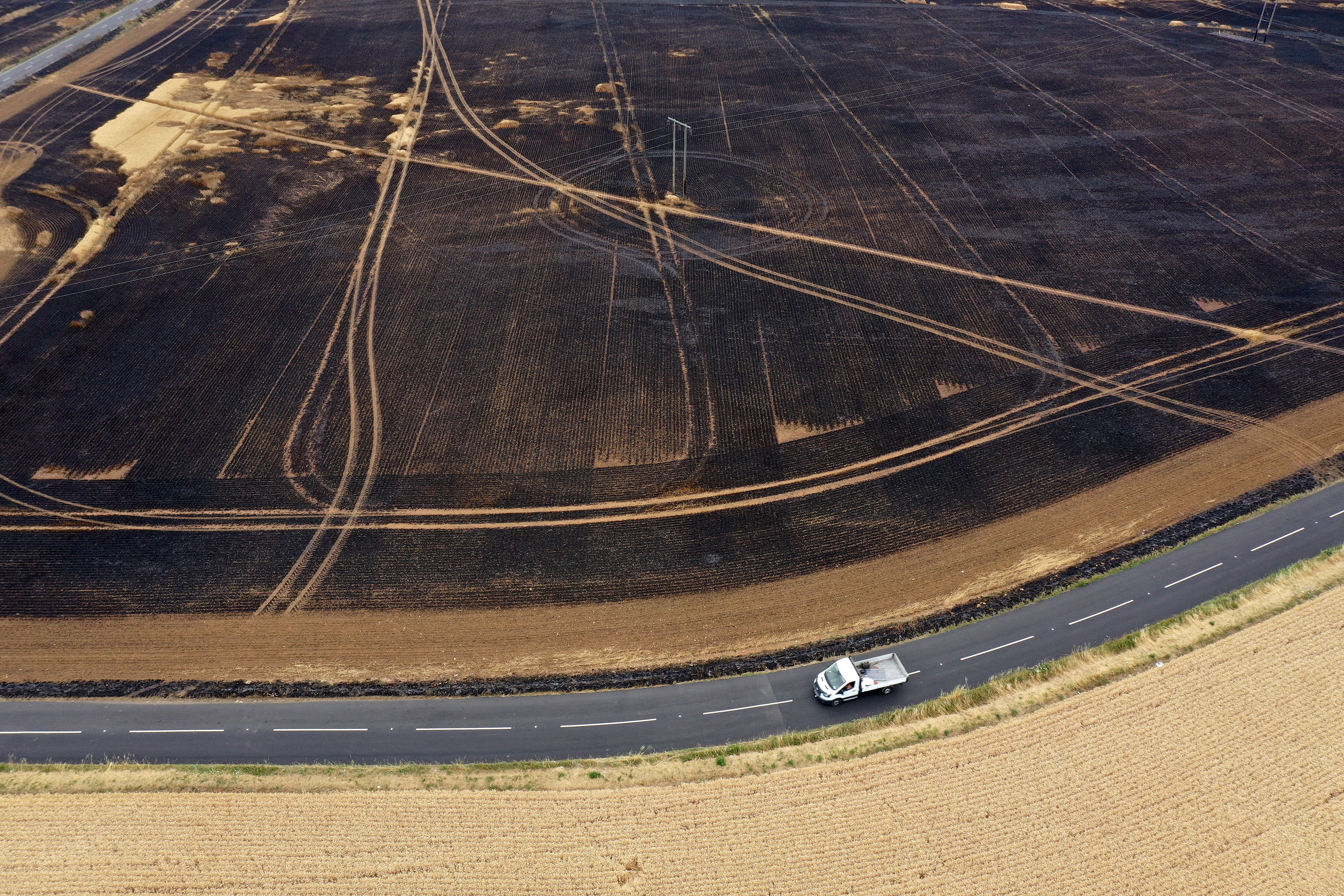Hot, dry weather causes earliest start to harvest since 1976, says farmers’ unions
Temperatures in the UK have been higher than average for every month so far this year
Your support helps us to tell the story
From reproductive rights to climate change to Big Tech, The Independent is on the ground when the story is developing. Whether it's investigating the financials of Elon Musk's pro-Trump PAC or producing our latest documentary, 'The A Word', which shines a light on the American women fighting for reproductive rights, we know how important it is to parse out the facts from the messaging.
At such a critical moment in US history, we need reporters on the ground. Your donation allows us to keep sending journalists to speak to both sides of the story.
The Independent is trusted by Americans across the entire political spectrum. And unlike many other quality news outlets, we choose not to lock Americans out of our reporting and analysis with paywalls. We believe quality journalism should be available to everyone, paid for by those who can afford it.
Your support makes all the difference.The hot dry weather has caused the earliest start to harvest for many farmers since 1976, prompting fears about the impact on food production and crop planting.
Some farmers in East Anglia finished harvesting in July, which is “unheard of”, Tom Bradshaw, deputy president of the National Farmers’ Union (NFU) who farms wheat, barley and oats near Colchester in Essex.
“On our farm, we finished wheat last Thursday,” he said. “We don’t normally start wheat until the last day of July, so it’s incredibly early and certainly unprecedented in many situations.”
Mr Bradshaw said he had been “pleasantly surprised” by his wheat harvest, which was better than expected considering the hot, dry conditions, but he was concerned about his spring barley and spring oats, which account for around 40 to 50 per cent of his produce.
While it’s too early to say definitively how they’ve fared, Mr Bradshaw said his gut told him the harvest would be “pretty poor”.
“The spring-sown crops, spring barley, spring oats and peas, when they were planted in March and April - the impact has been far more dramatic, and that’s because they’ve had a lack of moisture right the way through their growing season,” he said. “The yields have been hit pretty badly.”
On Monday, the Met Office said July had been the driest in England since 1935 and the driest on record for East Anglia, southeast and southern England, with England recording just 35 per cent of its average rainfall for the month.
It will also be a month that goes down in history for extreme heat, with thermometers topping 40C for the first time on record in Lincolnshire, as temperatures overall in the UK have been higher than average every month so far this year.
Mr Bradshaw said the bulk of crop in England and Wales was sown in the autumn rather than spring, which means the total harvest likely won’t be a “disaster”. But he said the spring-sown crop could have an impact on the availability of malt and barley, used to make beer and whiskey.

There is also concern that the hot weather will mean this month’s oil seed rape planting will have to be delayed or replaced with a different crop if the soil remains too dry. That could impact cooking oil supplies as there is no good alternative crop that can be used to make it, Mr Bradshaw said.
The country’s harvest comes against the backdrop of the Russian conflict in Ukraine that has led to a shortage of sunflower oil globally. Oil seed rape is one of the possible replacements for sunflower oil for cooking.
Ukraine and Russia are also major suppliers of wheat, barley and corn and the conflict, alongside hot weather in many parts of the world, has exacerbated rising food prices and hunger in developing nations.
“Everyone was hoping for bumper crops to try and help mitigate some of the challenges,” said Mr Bradshaw. “But unfortunately we haven’t seen that bumper harvest across the board.”

Millie Askew, a lead analyst at the Agriculture and Horticulture and Development Board (AHDB), said the wheat harvest had started up to a month early in parts of England, but it was still too early to assess the impact of the hot, dry weather on the amount and quality of wheat produced.
So far AHDB data for winter barley yields showed it appeared to be faring okay - or even well - but crops on lighter soil, which struggles to retain moisture, had struggled. Ms Askew said she expected wheat yields to show similar trends.
Earlier in the season, conditions for growing wheat had been favourable sparking hope that its strong start would help the crop be resilient. But hot, dry weather since meant some wheat, especially in the south of England was maturing early, which impacts how much is produced.
Fortunately, more wheat was planted than normal this year helping to buffer the country from any fall in yield but the higher-than-usual temperatures could still impact the quality of milling wheat available.
Ms Askew said the premium of milling wheat over that which is used to feed animals is high, suggesting there may be a squeezed market for milling wheat this season.
“It’s very much a wait-and-see game,” she said.





Join our commenting forum
Join thought-provoking conversations, follow other Independent readers and see their replies
Comments